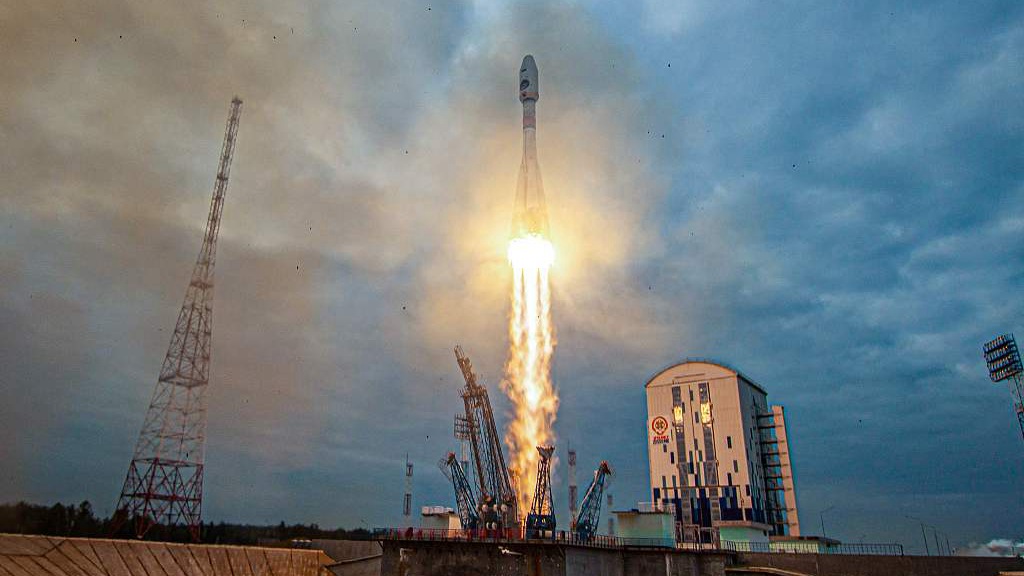
A Soyuz-2.1b rocket with the Luna-25 lander blasts off from the launch pad at the Vostochny cosmodrome, Russia, August 11, 2023. /CFP
A Soyuz-2.1b rocket with the Luna-25 lander blasts off from the launch pad at the Vostochny cosmodrome, Russia, August 11, 2023. /CFP
Russia on Tuesday blamed a malfunction in an onboard control unit for causing its lunar lander to crash into the moon in August and said it was looking at speeding up the timetable for two further missions.
Russia's first moon mission in 47 years ended in failure on August 19 with the crash of its Luna-25 spacecraft.
The state space corporation, Roscosmos, said the control unit had malfunctioned by failing to turn off the propulsion system, which blasted for one and a half times longer than necessary as the craft hurtled towards the moon.
Its preliminary analysis of the August crash showed that "when issuing a corrective pulse to transfer the spacecraft from a circular lunar orbit to an elliptical pre-landing orbit, the Luna-25 propulsion system worked for 127 seconds instead of the planned 84 seconds," said Roscosmos.
It said the most likely cause was that the onboard control system malfunctioned in the spacecraft's angular velocity measuring unit because of incorrect data commands. As a result, the propulsion system was not shut down when needed.
Roscosmos chief Yuri Borisov said a commission of investigation had completed its examination of what went wrong and was preparing a report to the government.
He said Russia was determined to move ahead with its moon exploration program. "Moreover we are considering the possibility of moving forward the Luna-26 and Luna-27 missions in order to get the results we need as quickly as possible."
Russia has previously said that Luna-26 would be an orbital mission and Luna-27 would be a lander with a drilling rig. Russia and other countries are keen to establish the extent of frozen water near the moon's south pole that could support a human presence there in the future.
The country's ambitious plan in space also includes a new Russian orbital station to replace the aging International Space Station, where Russian cosmonauts have lived and worked alongside peers from the United States and other countries since 2000.
Borisov said Russia had received strong interest from Türkiye, Brazil and South Africa in taking part.
Source(s): Reuters